Report: Altruism in Children
Jean Decety and colleagues assessed altruism┬áand moral cognition in six countries. ┬áParents in religious households reported┬áthat their children expressed more┬áempathy and sensitivity for justice in┬áeveryday life. However, religiousness was┬áinversely predictive of childrenÔÇÖs altruism┬áand positively correlated with their┬ápunitive tendencies.
Prosocial behaviors are ubiquitous across societies. They emerge early in ontogeny
ments and prosocial behavior, the relation between┬áreligiosity and morality is a contentious one. Here,┬áwe assessed altruism and third-party evaluation of┬áscenarios depicting interpersonal harm in 1,170 children aged between 5 and 12 years in six countries┬á(Canada, China, Jordan, Turkey, USA, and South Africa), the religiousness of their household, and┬áparent-reported child empathy and sensitivity to justice. Across all countries, parents in religious households reported that their children expressed more┬áempathy and sensitivity for justice in everyday life┬áthan non-religious parents. However, religiousness┬áwas inversely predictive of childrenÔÇÖs altruism and┬ápositively correlated with their punitive tendencies.┬áTogether these results reveal the similarity across┬ácountries in how religion negatively influences chil-
drenÔÇÖs altruism, challenging the view that religiosity┬áfacilitates prosocial behavior.
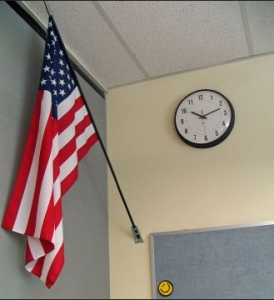 The current language of the Pledge of Allegiance as written in our federal laws states, ÔÇ£I pledge allegiance to the Flag of the United States of America, and to the Republic for which it stands, one Nation under God, indivisible, with liberty and justice for all.ÔÇØ
The current language of the Pledge of Allegiance as written in our federal laws states, ÔÇ£I pledge allegiance to the Flag of the United States of America, and to the Republic for which it stands, one Nation under God, indivisible, with liberty and justice for all.ÔÇØ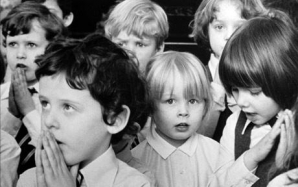 The Supreme Court has repeatedly struck down as unconstitutional attempts to inject prayer or other forms of devotional practices into public schools. The Establishment Clause forbids school-sponsored prayer. Classroom prayers and Bible readings are unconstitutional, even if students are excused from participating. Inclusion of prayer as part of the official school program gives government power over religion. Even supposedly neutral prayers privilege religion over non-religion and are unacceptable.
The Supreme Court has repeatedly struck down as unconstitutional attempts to inject prayer or other forms of devotional practices into public schools. The Establishment Clause forbids school-sponsored prayer. Classroom prayers and Bible readings are unconstitutional, even if students are excused from participating. Inclusion of prayer as part of the official school program gives government power over religion. Even supposedly neutral prayers privilege religion over non-religion and are unacceptable.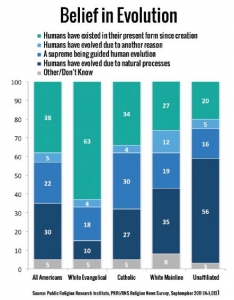 Public schools must teach science, not religion, in science classes. Laws banning teaching evolution are unconstitutional. ÔÇ£Balanced TreatmentÔÇØ laws that require teachers to give ÔÇ£creation scienceÔÇØ or ÔÇ£Intelligent DesignÔÇØ equal classroom time to evolution are equally unconstitutional.
Public schools must teach science, not religion, in science classes. Laws banning teaching evolution are unconstitutional. ÔÇ£Balanced TreatmentÔÇØ laws that require teachers to give ÔÇ£creation scienceÔÇØ or ÔÇ£Intelligent DesignÔÇØ equal classroom time to evolution are equally unconstitutional. Students deserve sex education programs that provide the information and skills necessary to make informed, responsible, and healthy decisions to reduce unintended pregnancy, partner-on-partner violence, STIs and HIV. Sex education in publicly funded schools must be medically accurate and free from religious influence. Abstinence-only sex education is religiously motivated and ineffective. Eighty-eight percent of students break their abstinence pledges. Two-thirds of high school students have had sex.
Students deserve sex education programs that provide the information and skills necessary to make informed, responsible, and healthy decisions to reduce unintended pregnancy, partner-on-partner violence, STIs and HIV. Sex education in publicly funded schools must be medically accurate and free from religious influence. Abstinence-only sex education is religiously motivated and ineffective. Eighty-eight percent of students break their abstinence pledges. Two-thirds of high school students have had sex.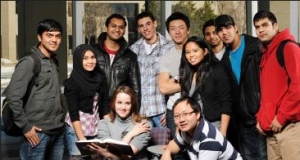 Non-theist, secular student groups are entitled to the same rights and protections as other extra-curricular student groups.
Non-theist, secular student groups are entitled to the same rights and protections as other extra-curricular student groups.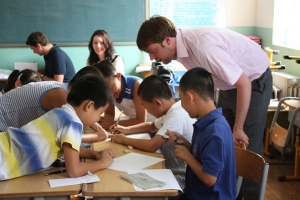 Public funds should not support parochial schools, either directly or indirectly through voucher programs. Vouchers provide citizens with direct funding to apply to private school tuitions. Scholarship funds and other tax deduction programs fund private religious institutions indirectly by allowing taxpayers to claim tax credits on their personal income taxes, reducing the amount paid to the state and shifting the money to the private school of the taxpayerÔÇÖs choice. Both programs allow for the public funding of religious educations. Seventy-six percent of private schools in America have a religious affiliation, serving 80 percent of private school students; ┬áthus, vouchers are primarily subsidies for religious schools. In 2001, in Zelman v Harris, a closely divided Supreme Court rejected an Establishment Clause challenge to vouchers. The Secular Coalition believes Zelman was wrongly decided and stresses that the Court ruled only on the constitutionality of voucher programs, rather than their wisdom or unintended consequences in a pluralistic nation.
Public funds should not support parochial schools, either directly or indirectly through voucher programs. Vouchers provide citizens with direct funding to apply to private school tuitions. Scholarship funds and other tax deduction programs fund private religious institutions indirectly by allowing taxpayers to claim tax credits on their personal income taxes, reducing the amount paid to the state and shifting the money to the private school of the taxpayerÔÇÖs choice. Both programs allow for the public funding of religious educations. Seventy-six percent of private schools in America have a religious affiliation, serving 80 percent of private school students; ┬áthus, vouchers are primarily subsidies for religious schools. In 2001, in Zelman v Harris, a closely divided Supreme Court rejected an Establishment Clause challenge to vouchers. The Secular Coalition believes Zelman was wrongly decided and stresses that the Court ruled only on the constitutionality of voucher programs, rather than their wisdom or unintended consequences in a pluralistic nation.